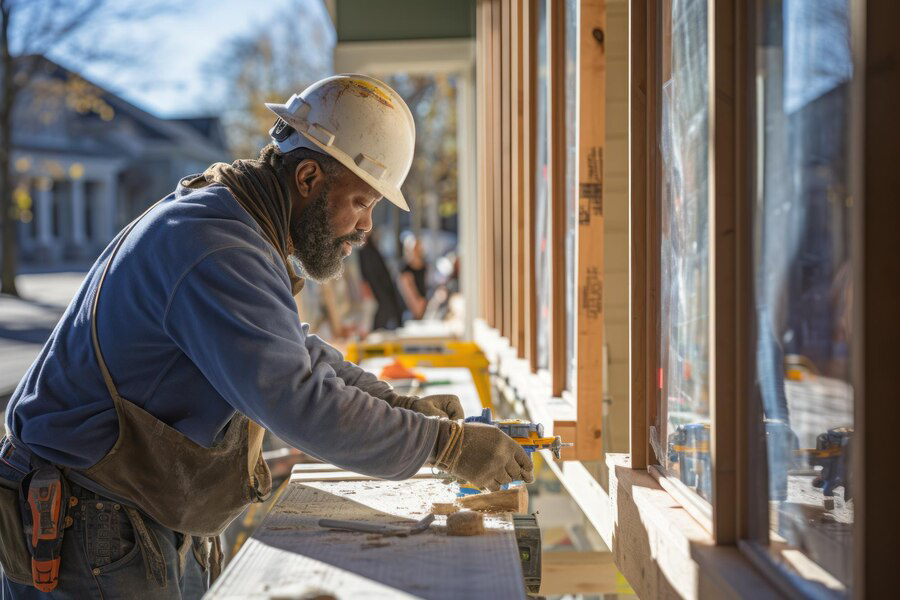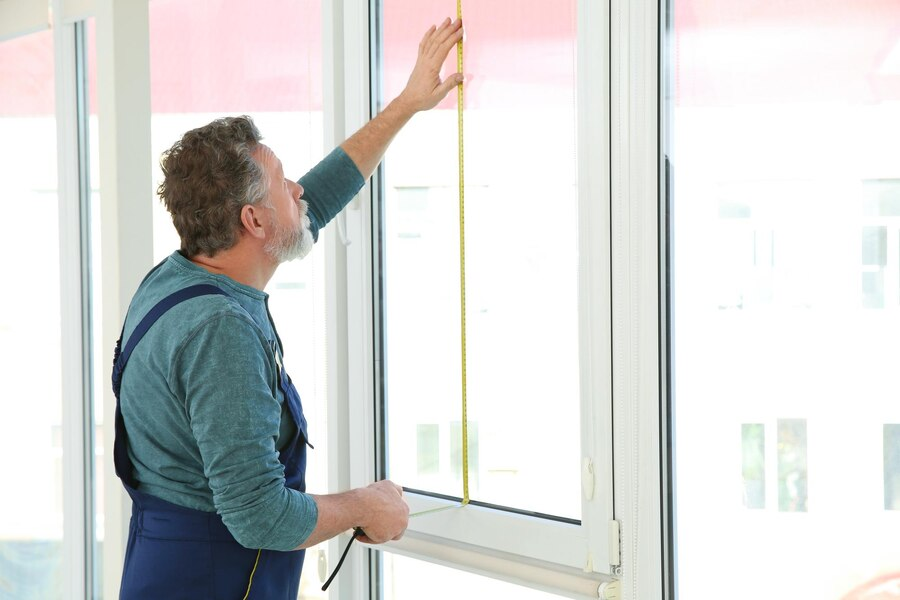
How to Measure Your Home for Replacement Windows
Replacing your windows is a fantastic way to boost your home’s energy efficiency and curb appeal. However, before you can enjoy the benefits of new windows, you need to ensure they fit perfectly. Measuring your home accurately is crucial for a successful window replacement project. In this guide, we’ll walk you through the essential steps to measure your windows correctly, whether you’re a DIY enthusiast or preparing for a professional installation. Understanding the right techniques for measuring your windows can help you avoid common pitfalls and ensure a snug fit for your new panes. From gathering the necessary tools to measuring dimensions precisely, we’ll cover everything you need to know to get started on transforming your space with new, high-quality windows.
Understanding the Importance of Accurate Measurements
Accurate measurements are foundational to a wide range of disciplines and applications, from scientific research and engineering to cooking and everyday tasks. The precision of measurements impacts the reliability and quality of outcomes in numerous fields. Whether it’s in constructing a building, performing an experiment, or even measuring ingredients for a recipe, the accuracy of measurements can make a significant difference in results. Here, we will explore eight critical reasons why accurate measurements are so important.

Ensuring Safety
In fields like construction, engineering, and medicine, precise measurements are essential for safety. For example, in construction, accurate measurements ensure that structural elements fit together correctly and that the building is stable and safe for occupancy. In medicine, accurate dosing of medications is crucial to avoid adverse effects or ineffective treatment. Safety protocols in any industry rely on the precision of measurements to protect lives and maintain standards.
Achieving Quality
Quality control is another area where accurate measurements are vital. In manufacturing, precise measurements of materials and components ensure that products meet required specifications and standards. This precision helps maintain the quality and consistency of products, whether it’s electronics, automobiles, or food items. A slight deviation can lead to defects, malfunctions, or dissatisfaction among customers.
Facilitating Scientific Research
In scientific research, accurate measurements are fundamental to obtaining valid and reproducible results. Whether researchers are measuring chemical concentrations, temperatures, or time intervals, precise data collection is essential for drawing accurate conclusions and verifying hypotheses. Reliable measurements allow scientists to build on previous work, contribute to advancements in knowledge, and maintain credibility in their findings.
Improving Efficiency
Accurate measurements can significantly enhance efficiency in various processes. In industries like agriculture and manufacturing, precise measurements of inputs such as fertilizers, raw materials, and energy resources optimize production and minimize waste. Efficiency improvements lead to cost savings and better resource management, contributing to overall operational effectiveness.
Supporting Legal and Regulatory Compliance
Many industries are governed by strict regulations that require adherence to specific measurement standards. Accurate measurements are necessary to comply with legal and regulatory requirements, such as those related to environmental emissions, food safety, and product labeling. Compliance with these regulations
Gathering the Right Tools for the Job
Selecting the appropriate tools is essential for accomplishing tasks efficiently and effectively, whether you are working on a DIY project, conducting scientific research, or performing routine maintenance. The right tools can significantly enhance productivity, accuracy, and safety. Conversely, using the wrong tools can lead to inefficiency, mistakes, and even potential hazards. Understanding how to gather and utilize the right tools is crucial for success in any endeavor. Here are eight key reasons why selecting the right tools is so important:
Enhanced Efficiency
The right tools are designed to perform specific tasks with precision and ease, leading to increased efficiency. For example, using a power drill instead of a manual screwdriver can speed up the process of assembling furniture. In professional settings, having specialized tools for particular functions ensures that tasks are completed more quickly and with less effort, allowing for a more streamlined workflow.
Improved Accuracy
Accuracy is vital in many tasks, from construction and engineering to crafting and cooking. Tools that are designed for specific measurements or functions help ensure that tasks are completed accurately. For instance, a digital caliper provides precise measurements for engineering projects, while a kitchen scale ensures accurate ingredient quantities for baking. Using the right tool reduces the likelihood of errors and improves the quality of the final outcome.
Increased Safety
Using tools that are appropriate for the task helps minimize safety risks. Tools designed for specific purposes often come with safety features that reduce the chance of accidents. For example, a wrench that fits perfectly on a bolt is less likely to slip and cause injury compared to an ill-fitting tool. Ensuring that you have the right tools also means following best practices and safety guidelines, further protecting yourself and others.
Better Quality of Work
The quality of work is directly influenced by the tools used. High-quality, well-suited tools contribute to a better finish and more professional results. For instance, a fine-grit sandpaper yields a smoother surface compared to a coarse one, and a precision screwdriver ensures accurate tightening of small screws. Investing in the right tools enhances the overall quality and durability of the work produced.
Reduced Wear and Tear
Using the appropriate tools for a job can reduce wear and tear on both the tools and the materials being worked on. For example, using the correct type of saw blade for cutting different materials will prolong the blade’s life and reduce the risk of damaging the material. This not only extends the lifespan of the tools but also reduces maintenance costs and replacements.
Assessing Window Frame Condition During Measurement
When measuring your windows for replacement, it’s crucial to assess the condition of the window frame. The state of the frame can affect the fit and performance of your new windows. Here’s what you need to check:
Check for Rot or Damage: Inspect the frame for any signs of rot, decay, or damage. Rotten or weakened areas can affect the installation and performance of the new windows. Addressing these issues beforehand ensures a better fit and longer lifespan for your new windows.
Look for Warping or Distortion: Ensure the frame is straight and not warped or distorted. Warped frames can cause misalignment and gaps, impacting the insulation and appearance of your new windows.
Assess Frame Level and Plumb: Use a level to check that the frame is even and plumb. Uneven frames can lead to difficulties in fitting the new windows correctly, affecting their functionality.
Check for Previous Repairs: Examine any past repairs or modifications. Ensure they were done properly, as poorly executed repairs can affect the new installation and may require additional work.
Conclusion
Measuring your home for replacement windows is a crucial step in ensuring a perfect fit and optimal energy efficiency. By carefully taking precise measurements and considering factors such as window style and frame condition, you can avoid common pitfalls and make the installation process smoother. Accurate measurements not only help in selecting the right windows but also ensure that your investment provides the maximum benefits in terms of comfort and cost savings.
If you need assistance or have any questions about measuring your windows, EZ Window Solutions of Strongsville is here to help. Our experienced team in Strongsville, Ohio, is dedicated to guiding you through every step of the replacement process. Contact us today at +1 (440) 230-3838 to schedule a consultation or get more information about our services. We look forward to assisting you!


Write a Comment